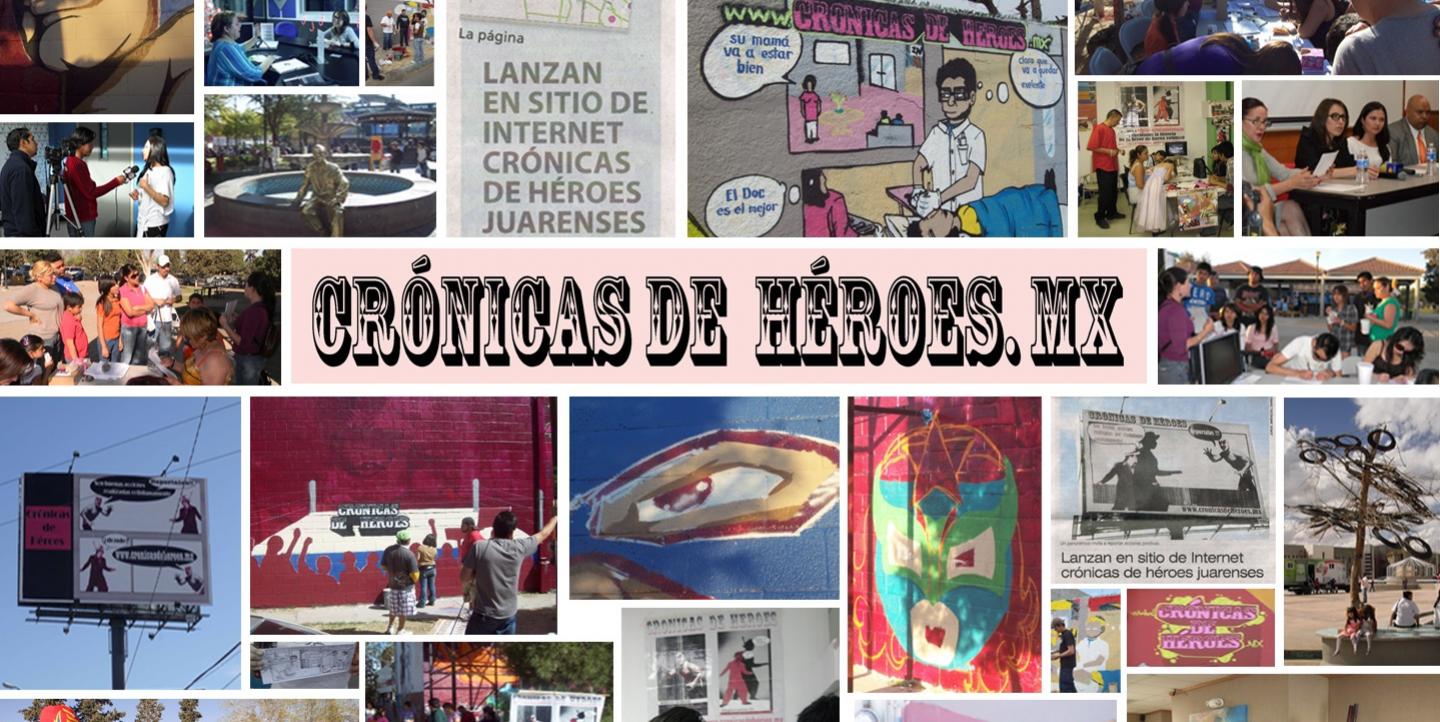To record good deeds and lift morale are the objectives of Juarez Hero Reports, a crowdsourced website that reports everyday acts of kindness in the crime-ridden city of Ciudad Juarez, Mexico.
The idea for the project came about in 2009 when Christopher Csikszentmihályi, director of the Center for Future Civic Media at the Massachusetts Institute of Technology (MIT), visited Ciudad Juarez in Mexico as part of a delegation in charge of devising ways to help the embattled city. Known for its raging drug cartel violence and sex-related murders, Ciudad Juarez earned the infamous title of being one of the most violent cities in the world.
In a meeting with community leaders, Csikszentmihályi asked who were the city’s heroes. There are no heroes in Ciudad Juarez was the reply.
Juarez Hero Reports aims to prove that assumption wrong. The website has published 994 good deeds since its unofficial launch in November 2010. Two other sites will launch shortly, Monterrey Hero Reports and Tijuana/San Diego Hero Reports.
IJNet interviewed Yesica Guerra, 33, director of Hero Reports - Mexico and Cultural Diplomatic Representative of the MIT Cultural Center for Future Civic Media.
IJNet: What are the objectives of Juarez Hero Reports?
Yesica Guerra: Locally, the project attempts to inject positive energy and promote change from the grassroots level, changing the negative mindset of locals and replacing it with mental, social and cultural positivism. We also want to restore civic pride, giving rise to optimism and that fighting spirit which has always been a trait of this city...(The project also) seeks to promote meaningful interaction and make people care about what happens to others and not just themselves (…).
Internationally, the initiative aims to change the image (...) of Ciudad Juarez, since the majority of its residents want peace and believe in community values.
IJNet: How did you publicize the project? How did you reach out to residents of Ciudad Juarez who don’t have access to a computer or the Internet?
YG: Unlike the way the project is advertised in U.S. cities, mainly through the website, for Ciudad Juarez we wanted cross-sections of the community to have access to the project through various means, (so we used) the distribution of promo postcards and posters placed in different areas of the city.
We also organized informational workshops with different groups such as non-governmental organizations, private and public educational institutions, religious organizations, etc.
We also held several public events, painted murals in parks and worked with urban artists who donated space and talent. All this to promote our initiative (…) in a more active way.
IJNet: What part did new technologies play in this project and what was the role of traditional media?
YG: People can enter the story or good deed in our website, specify its category and location, which allows us to locate which are the areas of Ciudad Juarez with the most good actions.
We also work with traditional media. They have supported us massively to spread the project. Some local newspapers publish reports that appear in our site. We have also worked with radio stations that have aired several of the positive acts and we have been interviewed by various media, like CNN and BBC. The most recent interview was for TV Azteca, a national channel.

